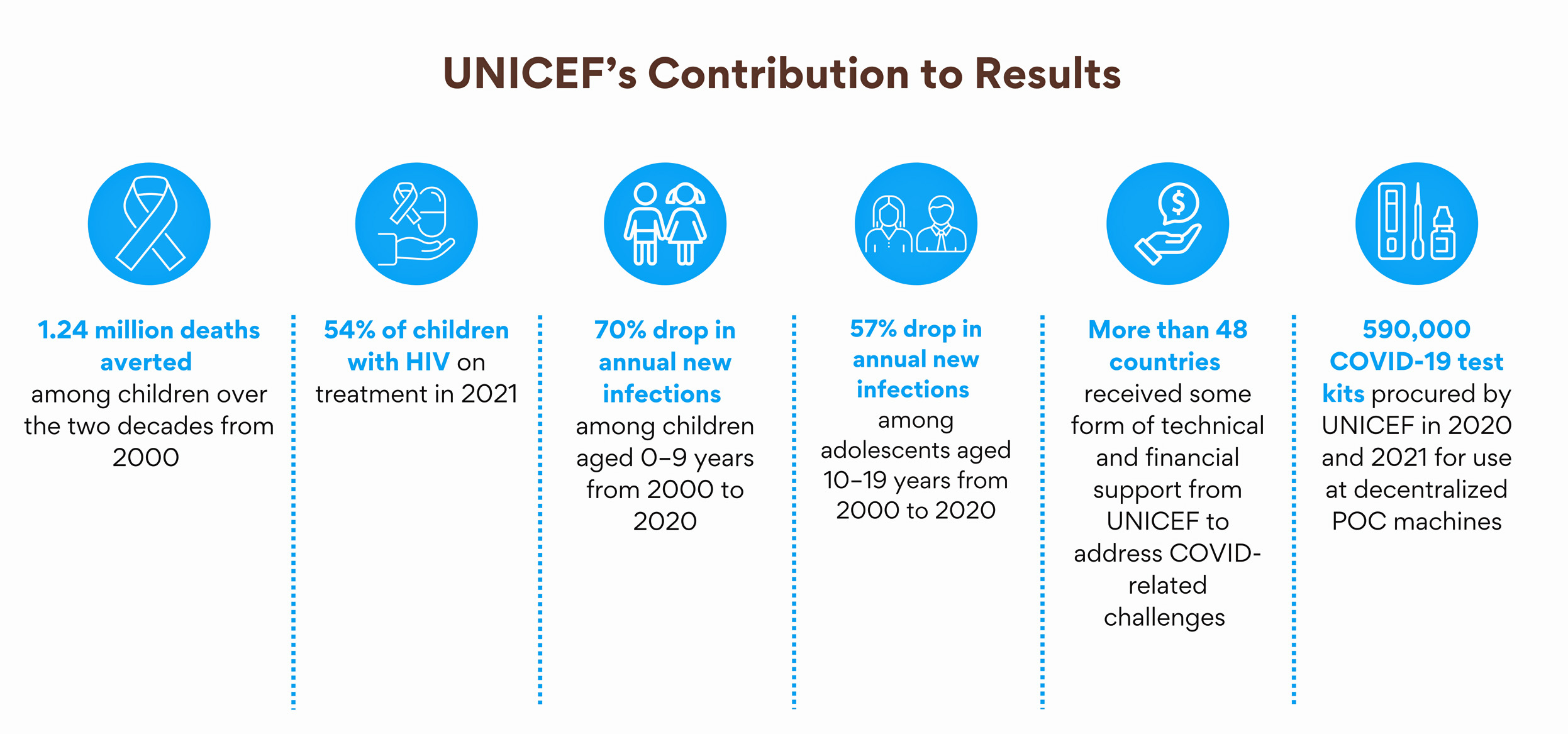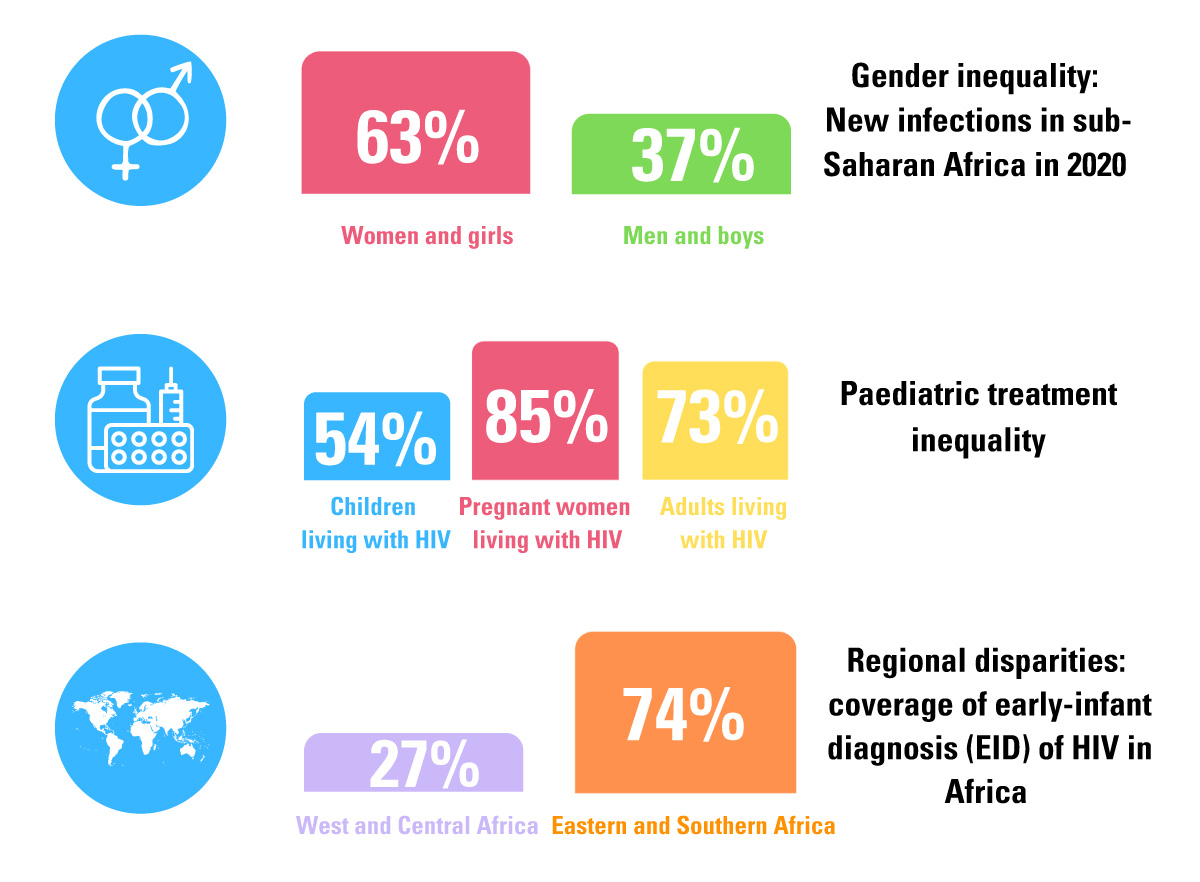Ending Inequalities - Getting on Track to End AIDS by 2030
A summary of the commitments and targets within the United Nations General Assembly’s 2021 Political Declaration on HIV and AIDS
A summary of the commitments and targets within the United Nations General Assembly’s 2021 Political Declaration on HIV and AIDS
Webinar: AIDS 2022 Summary on Pregnant Women, Children, Adolescents and HIV
Monday, 19 September, 2022 8:00–10:00 AM ET
Mettre fin au sida chez les enfants, grâce à une alliance forte, stratégique et orientée vers l’action de parties prenantes multisectorielles aux niveaux national, régional et mondial qui travaille avec des femmes, des enfants et des adolescents vivant avec le VIH, des gouvernements nationaux et des partenaires pour mobiliser le leadership, le financement et l’action afin d’en finir avec le sida chez les enfants d’ici 2030.
An end to AIDS in children, achieved through a strong, strategic, and action-oriented alliance of multisectoral stakeholders at national, regional, and global levels that works with women children and adolescents living with HIV, national governments, and partners to mobilize leadership, funding, and action to end AIDS in children by 2030.
The AIDS 2022 Roadmap outlines conference and pre-conference sessions related to children, adolescents and pregnant women, taking place at the 24th International AIDS Conference virtually and in Montreal, Canada from 29 July to 2 August, 2022. Access the full programme here.
It is clear that the AIDS epidemic is not over. The pace of progress is too slow to meet the 2030 SDG targets. To promote faster and more consistent improvement, the new UNICEF Strategic Plan emphasizes differentiation, integration, partnership and innovation to address barriers to inequalities.


This technical brief is one in a series addressing four young key populations. It is intended for policy-makers, donors, service-planners, service-providers and community-led organizations. This brief aims to catalyse and inform discussions about how best to provide health services, programmes and support for young men who have sex with men (MSM). It offers a concise account of current knowledge concerning the HIV risk and vulnerability of young MSM; the barriers and constraints they face to appropriate services; examples of programmes that may work well in addressing their needs and rights; and approaches and considerations for providing services that both draw upon and build to the strengths, competencies and capacities of young MSM.
Forms for data collection, surveys for SOPs on blood handling, household screening, registration, recuritement and more.
For adolescent boys and girls, transitioning to adulthood means facing significant social, health and economic risks. These include a lack of economic opportunities, early marriage and pregnancy, sexually transmitted infections including HIV, violence, abuse and exploitation. To support a safe, healthy and productive passage to adulthood, the Tanzania Social Action Fund (TASAF), the Tanzania Commission for AIDS (TACAIDS), UNICEF and other key stakeholders have developed, implemented and evaluated an intervention where social protection and economic empowerment interventions are combined with sexual and reproductive health education and services as part of the Tanzanian government’s cash transfer programme, the Productive Social Safety Net (PSSN).
The resources available include a project brief with a summary of the programme components and impact evaluation, as well as research briefs and reports from the baseline, midline and third wave of data collection.
HIV Service Delivery: Safeguarding the Future. This brief was developed to inform the global dialogue and accelerate action on giving priority to services and support for adolescent and young mothers living with HIV.